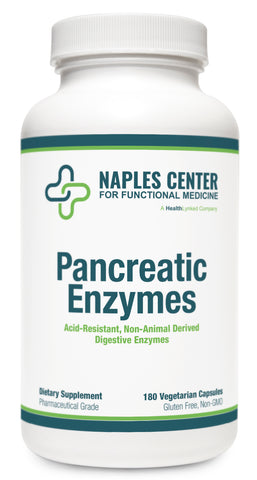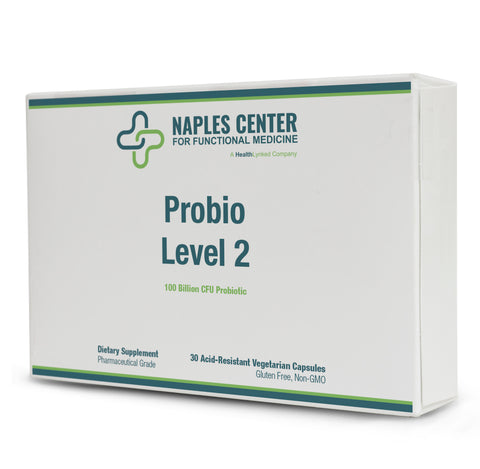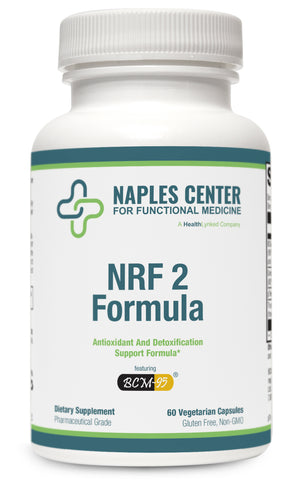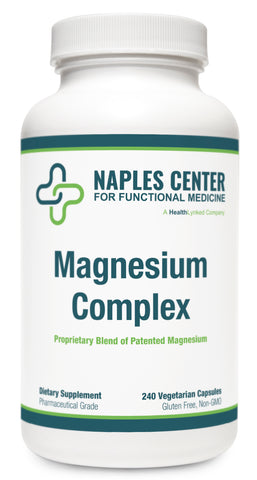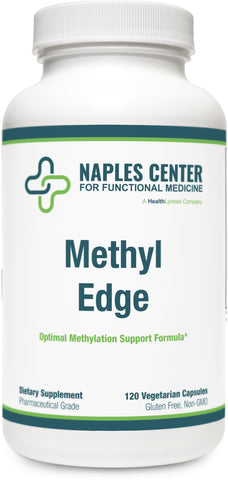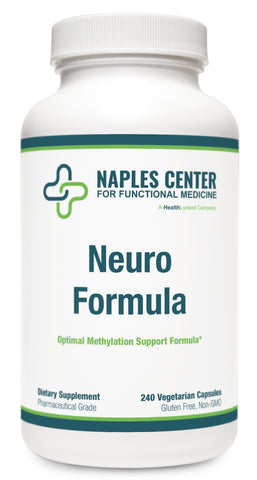Pancreatic Enzymes
Pancreatic Enzymes
Acid-Resistant, Non-Animal Derived Digestive Enzymes
Pancreatic Enzymes is a proprietary blend of digestive enzymes derived from the fermentation action of fungi such as Aspergillus niger and Rhizopus niveus, microorganisms safely used in fermenting foods, including cheese, soy sauce, and yogurt. These non-animal derived enzymes support the assimilation of nutrients in foods and the digestion of proteins, carbohydrates, fats, and vegetable matter. Clinical trials suggest that Pancreatic Enzymes is effective across a broad spectrum of pH ranges.*
Disclaimer
Directions
Take one capsule with or after each meal, or as directed by your healthcare practitioner.
Children and pregnant or lactating women should consult their healthcare practitioner prior to use. Do not use if there is a history of, or a current, peptic or duodenal ulcer. Do not use if tamper seal is damaged.
Does Not Contain
Wheat, gluten, corn protein, yeast, soy, animal or dairy products, fish, shellfish, peanuts, tree nuts, egg, artificial colors, artificial sweeteners, or preservatives.
Storage
Keep closed in a cool, dry place out of reach of children.
Other Ingredients
Calcium carbonate, microcrystalline cellulose, HPMC (capsule), stearic acid, silica, and magnesium stearate.
Applications
- Supports Healthy Digestion of Proteins, Carbohydrates, Fats, and Vegetable Fiber*
- Supports Assimilation of Nutrients*
- Supports Normal Pancreatic Function*
Disclaimer
Discussion
Enzymes are functional proteins that participate in important metabolic processes throughout the body, such as the digestion of macronutrients (carbohydrates, proteins, and fats). During digestion, specific enzymes break down specific macronutrients: amylases convert carbohydrates to simple sugars (mono- and di-saccharides), proteases (also called proteolytic enzymes) convert proteins into peptides and free amino acids, and lipases break down fats into free fatty acids (monoglycerides) and glycerol. The pancreas produces these enzymes and releases them into the small intestine, where the majority of digestion takes place. Adequate production, release, and delivery of enzymes are necessary for optimal digestion.*
The use of supplemental digestive enzymes was employed in the 1940s by physician and researcher Edward Howell,[1] and today supplemental enzymes continue to be utilized clinically to support digestion, assimilation, and gastrointestinal health.[2] Digestive enzymes are recommended to select individuals to support normal pancreatic digestive function.*[3,4]
Pancreatic Enzymes contains a variety of digestive enzymes to provide broad spectrum support.[5] Biodiastase contains amylase for carbohydrate digestion, protease for protein digestion, and cellulase to support the breakdown of vegetable fiber. Lipase is present to facilitate the breakdown of fats. Newlase contains both protease and lipase to further support healthy and complete digestion.*
Pancreatic Enzymes maintains optimal activity throughout the digestive tract, an important factor in supporting healthy digestion and absorption. It is not denatured by gastric acid or negatively affected by the alkaline environment in the intestines. A pH range of 3.5 to 6.0 creates the optimal environment for the enzymes in Pancreatic Enzymes; however, the enzymes remain stable within a range of 3.0 to 9.0.*
In addition to improving the digestive process, the combination of biodiastase, lipase, and newlase—the enzymes found in Pancreatic Enzymes—was clinically tested in a 25-week intervention trial to see if it improved the nutritional status of elderly individuals. Although body weight did not change significantly, individuals receiving the digestive enzyme blend were found to have a significant increase in both serum albumin and high density lipoprotein (HDL) cholesterol levels, suggesting that pancreatic enzyme administration supported markers for health and longevity.*[6,7]
The enzymes in Pancreatic Enzymes are prepared by fermentation, extraction, purification, and standardization of enzymes produced by types of fungi such as Aspergillus niger, Aspergillus sp., and Rhizopus niveus. Microbes employed for the manufacture of enzymes are safe microorganisms that have been used for a long time in the manufacture of fermented foods, such as beer, cheese, soy sauce, and yogurt. Hughes Center For Functional Medicine is proud to source this formula from Amano Enzyme Inc., a Japanese company that has been manufacturing enzymes since 1950 and is one of the top enzyme producers in the world.[8] The company performs intensive testing to confirm the safety of the enzymes and the specific strains used. Amano also assays the individual enzymes in Pancreatic Enzymes for heavy metals and overall purity .
We Also Recommend

